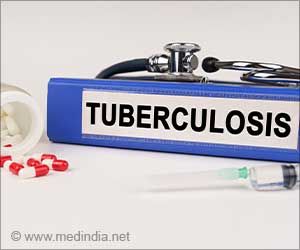Tuberculosis incidence is rising in Cardiff, capital of Wales, but the provincial government’s testing service is struggling to cope with the demand.
Tuberculosis incidence is rising in Cardiff, capital of Wales, but the provincial government’s testing service is struggling to cope with the demand. There is a crying to need for more specialist nurse time, it is felt.
The National Public Health Service for Wales (NPHS) actually says there is no major cause for concern. Its website notes – “Nearly all countries in the world are now affected by the global resurgence of TB caused primarily by poverty and poor access to health services, migration and HIV."In developed countries, tuberculosis is less common and is mainly an urban disease. In the United Kingdom in 2007, TB incidences range from 43.2 per 100,000 in London to less than 4 per 100,000 in Northern Ireland; the national average is 13.8 per 100,000. Data show that rates of TB in the UK born population remain relatively stable and low whilst the main burden of disease falls on UK residents born outside of the UK.
"TB rates have remained relatively stable over the last seven years in Wales at between 150 and 200 cases per year. Whilst rates in Wales are lower than the UK average (6.7 for Wales compared to 15.2 per 100,000 for the UK in 2007) patterns are similar, with higher rates in Asian and Black African ethnic populations, and rates higher in males and persons aged 15-44 year.”
But Wales Online asserts the TB levels are rising in the capital Cardiff, though no data is cited.
Dr Ian Campbell, a consultant chest physician with a special interest in TB, said: “TB is not as uncommon as people think – we find that the disease is cropping up more and more.
"TB in Cardiff is rising progressively, although in the rest of Wales it is coming down."
Advertisement
For its part NPHS says, “Key infections, including tuberculosis, are under constant surveillance, to detect significant trends, to evaluate prevention and control measures and to alert appropriate professionals and organisations to infectious disease threats.
"In addition, the NPHS Tuberculosis programme and the specialist reference mycobacteriology laboratory in South Wales also contribute to the effective diagnosis, surveillance and control of TB in Wales.”
But Dr.Campbell speaks of resource crunch and says, “We need more specialist nurse time and we need improved IT to make it easier and more efficient for the nurses and the clinics involved.
“We have been asking for this for a year and have been told that it will come in due course.
“It is frustrating but this is the way that the NHS works – it is always slow, particularly in these financial circumstances.”
Source-Medindia
GPL











